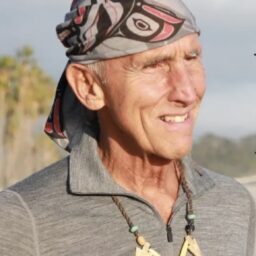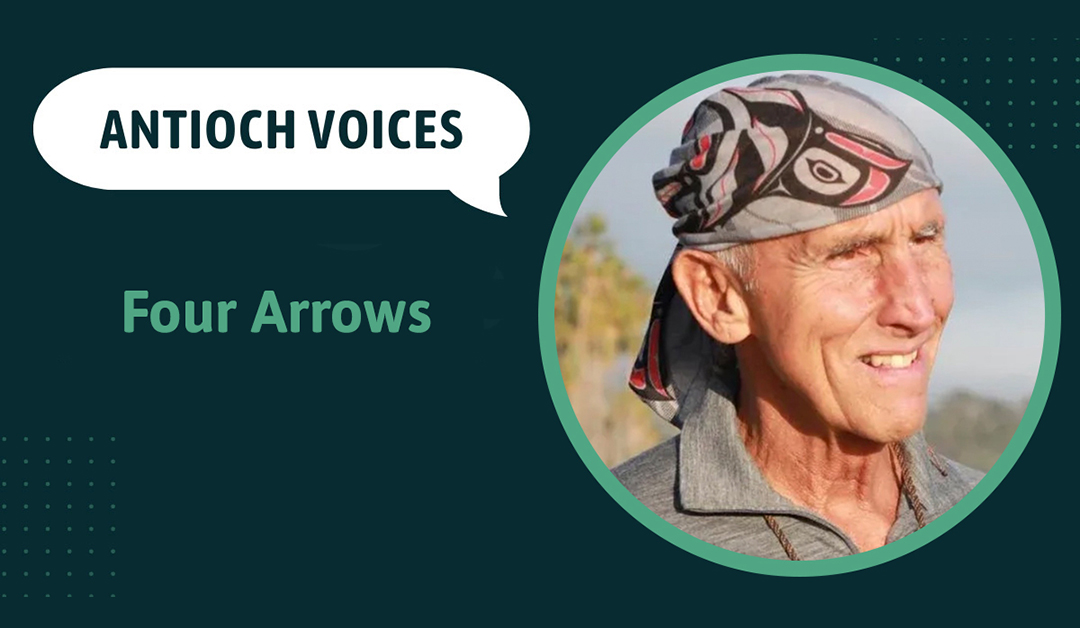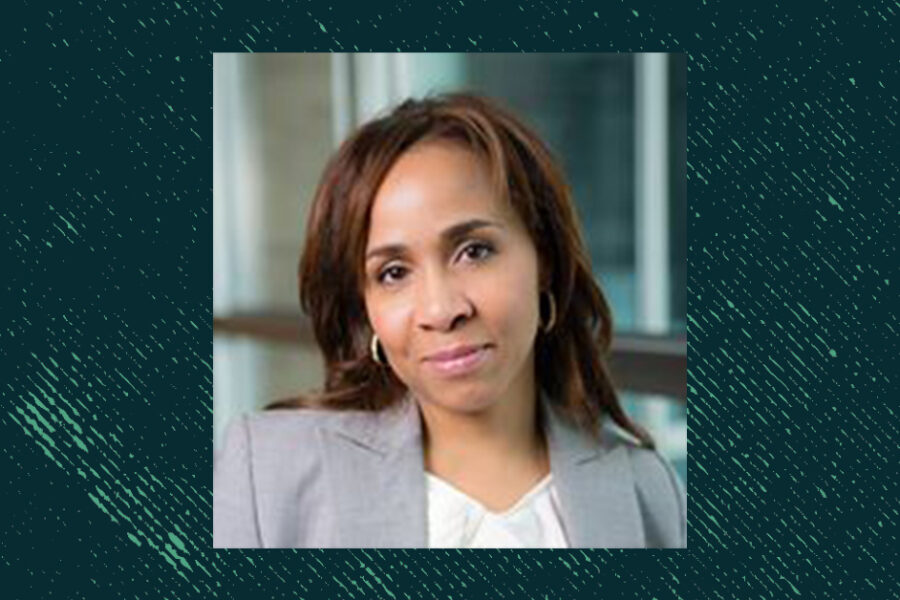This essay is part of Antioch Voices, a forum for Antiochians to speak out about issues important to them. Opinions expressed here belong to the author alone and do not necessarily reflect the official position of Antioch University. If you’d like to share your own voice, the first step is to send a short description of what you are planning to write about to [email protected].
On June 23, 2024, William R. Groves, respected Chancellor of Antioch University, wrote the following in “Calling for Peace in Gaza and Healing at Antioch” in Antioch’s Common Thread:
I am adding our voice to the many others calling for an immediate and permanent ceasefire, the immediate release of hostages, and for a global humanitarian aid effort in Gaza to swiftly reach all of the civilians who are suffering. Antioch is on the side of peace and human rights.
Antioch University should be proud that it has a Chancellor willing to make such a statement, in light of the silence of other university presidents on behalf of a ceasefire. While a few university presidents have courageously supported protests against what is happening in Gaza, I have not been able to locate other published statements from university presidents calling for an immediate and permanent ceasefire in Gaza, the release of hostages, and a global humanitarian aid effort to alleviate the suffering of civilians. These are important goals that align with our core values relating to peace. It is also taking a position that is contrary to that taken by a number of university presidents who have issued strong statements in support of Israel’s attack on Gaza.
However, to fully realize Antioch’s vision of social and ecological justice, we must take a stronger, more explicit stance on several inseparable issues. Calling for stopping the bombing and humanitarian aid is not enough. The international community, including numerous human rights organizations, has labeled the situation in Gaza as a genocide. The arrest warrants for Netanyahu on charges of war crimes and crimes against humanity and has implicated the U.S. in such crimes. The crimes continue and universities are failing to take sides by calling recognizing them for what they are. Restoring sanity is not just a matter of semantics. It requires acknowledging the wrongness and severity of what is happening and holding those responsible accountable with urgent and comprehensive action.
A main reason for the neutrality of university leaders relates to the Kalven Report on the University’s Role in Political and Social Action. Written during the Viet Nam protests in November 1967, it says:
The neutrality of the university as an institution arises then not from a lack of courage nor out of indifference and insensitivity. It arises out of respect for free inquiry and the obligation to cherish a diversity of viewpoints. And this neutrality as an institution has its complement in the fullest freedom for its faculty and students as individuals to participate in political action and social protest.
While these words are often cited to defend neutrality, seldom is the next paragraph mentioned:
From time to time instances will arise in which the society, or segments of it, threaten the very mission of the university and its values of free inquiry. In such a crisis, it becomes the obligation of the university as an institution to oppose such measures and actively to defend its interests and its values.
There are a number of university presidents who have written about the importance of university leaders taking positions on such exceptional issues. For example, in his 2001 piece, “Where are College Presidents’ Voices on Important Public Issues,” the former president of the University of Notre Dame, Theodore Martin Hesburg, wrote:
Once university presidents could speak with moral authority…We cannot urge students to have the courage to speak out unless we are willing to do so ourselves.
He refers to Princeton and Harvard presidents, William Bowen and Derek Bok who stood strongly for racial preferences in higher education admissions, and Lee Bollinger of the University of Michigan who defended affirmative action.
Unfortunately, times have changed. While trying unsuccessfully to get one of my previous college presidents to take a stand against an oil pipeline across a river at Standing Rock, I wrote an article for Truthout about university president’s silence on climate change.
Janet Napolitano, past president of the University of California, said ‘leaders of great public institutions should take positions on great public questions but need to do so with an appropriateness lens.’ The Vancouver Sun summed up her overall message as implying that “universities have a role in urging governments to take climate change more seriously, as long as they don’t take political sides.”
Not taking political sides is a risk, especially when it comes to any policies for which AIPAC has interest, has become a given for both politicians and university presidents. Its powerful influence coupled with the lack of historical knowledge relating to what is happening in Gaza is well known. Yet a university president that ignores the role of the United States in providing the bombs and military support that fuel this conflict is an atrocity that is ignored at our peril, a peril right around the corner as we enter into the U.S. presidential elections. As an institution that prides itself on social/ecological justice, we must unequivocally condemn these actions. By doing so, we reaffirm our commitment to peace and justice, even when it requires us to confront uncomfortable truths about our own nation’s policies.
Moreover, the history of Gaza as an occupied territory and its current state as a de facto prison must be recognized. University presidents who believe the war started on October 7 and who disregard the historic and barbaric occupation of Gaza must know better, but feel it best to prevent nasty letters from faculty and students and/or to assure financial security takes precedent. Recognizing that the people of Gaza have been subjected to severe restrictions, economic deprivation, and systemic violence for decades is simply recognizing a profound injustice that demands our attention and action, not an opportunity to allow for the continuing genocidal policy of our government.
The actions of Prime Minister Netanyahu’s administration, which many view as embodying fascist principles, further exacerbate the plight of the Palestinian people. As an institution committed to opposing all forms of oppression, we must speak out against these policies and advocate for the rights and dignity of all individuals, regardless of their nationality or religion.
By taking a firm and principled stand on these issues, Antioch University can lead by example in the fight for social and ecological justice. We must be willing to take positions that may alienate those who support the ongoing conflict, recognizing that justice requires courage and integrity. It requires truth seeking and truth embracing.
As an Indigenous scholar, in 1999 I myself did not fully understand the truths about the conflict until I keynoted the Militarism in Education conference at the University of Tel Aviv. While there I did medical triage when a 15-year-old suicide bomber killed innocent Jewish citizens near where I was staying. I listened to the Israeli professors critique of their government despite the unforgivable tragedy. I went into Gaza and Ramallah to see for myself and saw the horrors that wrongly prompted the bombing but that deserved appropriate resolution. I have a grandson who did his bar mitzvah, and he, knowing the truth, stands strong behind it as many are doing, but not the university presidents.
In these challenging times, it is essential that we all find the courage to learn the truth and then take responsible action in support of it. Justice cannot remain theoretical. By doing so, we truly honor the values that define Antioch and its quest for justice, peace, and inclusivity.

Four Arrows
Four Arrows is a core faculty member with Antioch’s doctoral program in Education and Professional Practice. Former Dean of Education at Oglala Lakota College, he is an Indigenous-based scholar and author of numerous publications and presentations on Indigenous worldview applications, including 24 books endorsed by such notables as Vandanna Shiva, Noam Chomsky, Henry Giroux, Thom Hartmann, John Pilger, and many more. His book, Restoring the Kinship Worldview, was selected by UC Berkeley’s Science Center for the Greater Good as one of the “most thought provoking, inspiring and practical science texts of 2022.” He lives with his artist wife in Jalisco, Mexico in the winter and on the west coast of Vancouver Island in the summers.




